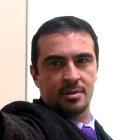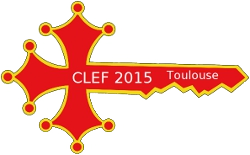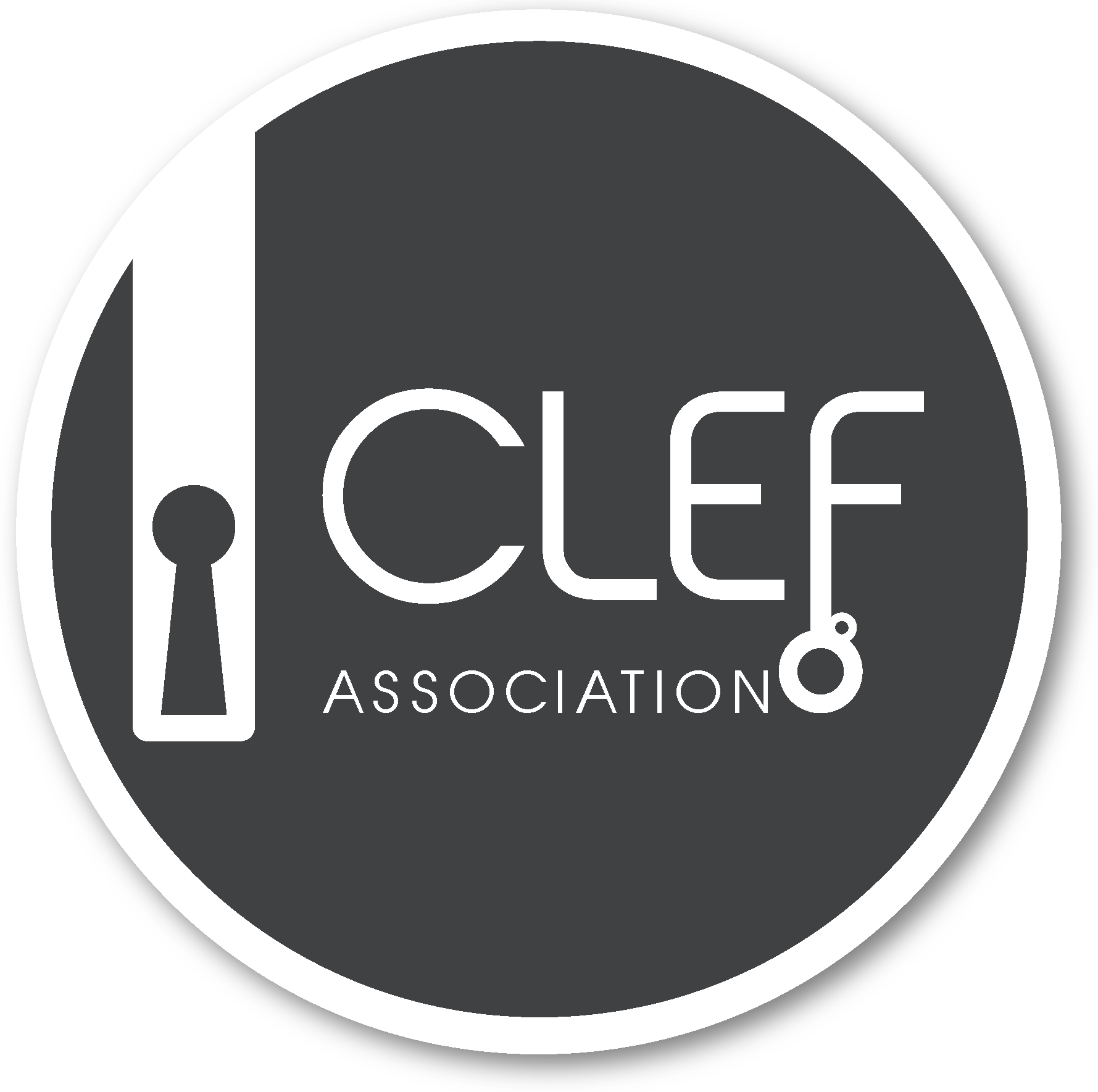| September 8 |
|
11:00-13:00
|
Lab Overviews 1 |
| 30 min. talk |
Overview of the PAN/CLEF 2015 Evaluation Lab
Efstathios Stamatatos, Martin Potthast,
Francisco Rangel, Paolo Rosso, and Benno Stein |
| 13:00-14:00 |
Lunch |
|
14:00-15:30
|
Lab Overviews 2 |
| September 9 |
|
Keynotes, Chair: Paolo Rosso |
| 08:30-09:30 |
Deception Detection in Criminal Analysis: From Lie Detector to Stylometry
Tommaso
Fornaciari |
| 09:30-10:30 |
Author Profiling in Practice
Walter Daelemans |
| 10:30-11:00 |
Break + Posters |
|
Author Identification, Chair: Efstathios Stamatatos |
| 11:00-11:30 |
Overview of the Author Identification Task at PAN 2015
Efstathios Stamatatos, Walter
Daelemans, Ben Verhoeven, Patrick Juola, Aurelio López López, Martin Potthast, and Benno
Stein |
| 11:30-11:50 |
Author Verification: Basic Stacked Generalization Applied To Predictions from a Set of
Heterogeneous Learners
Erwan Moreau, Arun Jayapal, Gerard Lynch, and Carl Vogel |
| 11:50-12:10 |
GLAD: Groningen Lightweight Authorship Detection
Manuela Hürlimann, Benno Weck, Esther
van den Berg, Simon Šuster, and Malvina Nissim |
| 12:10-12:30 |
Homotopy Based Classification for Author Verification Task
Josue Gutierrez, Jose
Casillas, Paola Ledesma, Gibran Fuentes, and Ivan Meza |
| 12:30-12:50 |
An Author Verification Approach Based on Differential Features
Alberto Bartoli, Alex
Dagri, Andrea De Lorenzo, Eric Medvet, and Fabiano Tarlao |
| 12:50-13:00 |
Discussion |
| 13:00-14:00 |
Lunch + Posters |
| 19:30 |
City Hall Welcome Reception |
|
Poster Sessions |
|
All participants are invited to present their work as a poster |
| September 10 |
|
10:00-12:00
|
CLEF Sessions Best of the Labs 2014 |
| 30 min. talk |
Adaptive Algorithm for Plagiarism Detection
Miguel A. Sánchez-Pérez, Alexander Gelbukh
and Grigori Sidorov |
| 12:00-13:30 |
Lunch |
|
Author Profiling, Chair: Francisco Rangel |
| 13:30-14:00 |
Overview of the 3rd Author Profiling Task at PAN 2015
Francisco Rangel, Fabio Celli,
Paolo Rosso, Martin Potthast, Benno Stein, and Walter Daelemans |
| 14:00 |
Award of appreciation for the overall best performing author profiling approach, sponsored by
MeaningCloud.
|
| 14:00-14:20 |
INAOE's Participation at PAN'15: Author Profiling Task
Miguel A. Álvarez-Carmona, A.
Pastor López-Monroy, Manuel Montes-y-Gómez, Luis Villaseñor-Pineda, and Hugo Jair Escalante
|
| 14:20-14:40 |
Tweets Classification Using Corpus Dependent Tags, Character and POS N-grams
Carlos E.
González-Gallardo, Azucena Montes, Gerardo Sierra, J. Antonio Núñez-Juárez, Adolfo Jonathan
Salinas-López, and Juan Ek |
| 14:40-15:00 |
XRCE Personal Language Analytics Engine for Multilingual Author Profiling
Scott Nowson,
Julien Perez, Caroline Brun, Shachar Mirkin, and Claude Roux |
| 15:00-15:20 |
A Random Forest Approach for Authorship Profiling
Alonso Palomino-Garibay, Adolfo T.
Camacho-González, Ricardo A. Fierro-Villaneda, Irazú Hernández-Farias, Davide Buscaldi, and Ivan
V. Meza-Ruiz |
| 15:20-15:30 |
Discussion |
| 15:30-16:00 |
Break |
|
Plagiarism Detection, Chair: Martin Potthast |
| 16:00-16:30 |
Towards Data Submissions for Shared Tasks: First Experiences for the Task of Text Alignment
Martin
Potthast, Steve Göring, Paolo Rosso, and Benno Stein |
| 16:30-17:00 |
Joint Talk on 3 Data Submissions to Text Alignment and 1 Source Retrieval Algorithm
Habibollah
Asghari, Khadijeh Khoshnava, Omid Fatemi, Heshaam Faili, Vahid Zarrabi, Salar Mohtaj, and Javad
Rafiei |
| 17:00-17:20 |
The Short Stories Corpus
Faisal Alvi, Mark Stevenson, and Paul Clough |
| 17:20-17:40 |
Improving Synoptic Querying for Source Retrieval
Šimon Suchomel and Michal Brandejs.
|
| 17:40-18:00 |
Discussion |
| 18:00-19:00 |
Concert |
| 20:00 |
Conference Dinner |
|
Poster Sessions |
|
All participants are invited to present their work as a poster |











